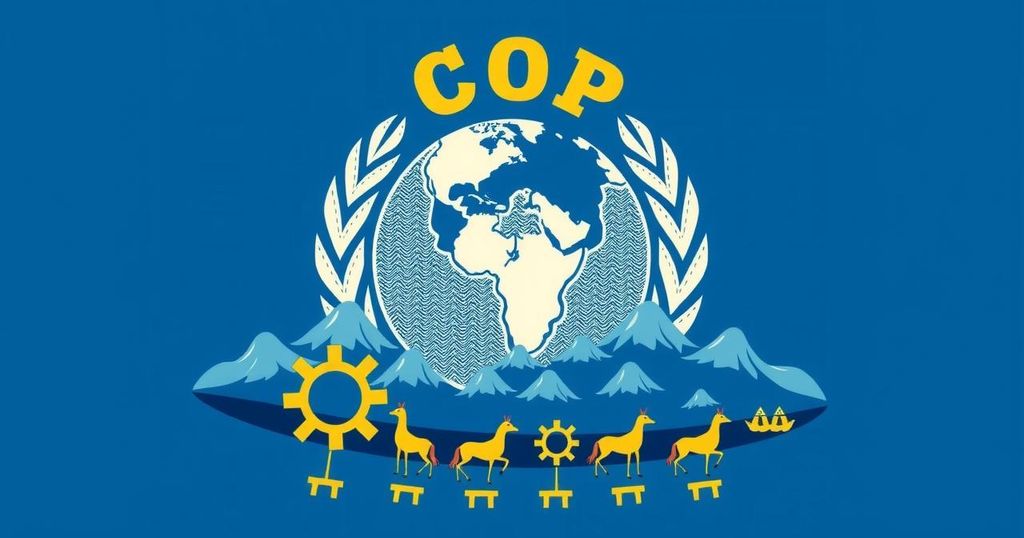COP meetings, particularly COP29 in Baku, have been criticized for failing to hold countries accountable for their climate commitments. Leading carbon emitters have not made substantial pledges, undermining efforts to limit emissions. Recent leadership scandals reveal conflicts of interest that diminish COP’s integrity. The lack of enforceable agreements and meaningful progress raises doubts about COP’s effectiveness in combating climate change.
The Conference of the Parties (COP) has increasingly been perceived as ineffective in addressing the pressing climate crisis, particularly as it prepares for its 29th meeting in Baku, Azerbaijan. David Attenborough poignantly questioned the trajectory of humanity’s response to climate change at COP26, highlighting the shortsightedness that might ultimately jeopardize our existence. Despite the high-stakes agenda, COP has failed to ensure accountability for nations, particularly leading carbon emitters like China, the U.S., India, and Russia, who continue to evade stringent commitments to reduce emissions. COP convenes 198 member states annually to negotiate climate strategies and pledges towards achieving net-zero emissions, with explicit adherence to the Paris Agreement. However, the lack of enforceable commitments allows countries to backtrack on their pledges without facing repercussions. While the Paris Agreement calls for Nationally Determined Contributions and Biennial Transparency Reports, only a minimal number of countries have complied adequately, leading to skepticism about their climate goals. A report from Imperial College London indicates that a limited number of net-zero pledges are deemed credible, and prevailing policies suggest that global temperatures are set to exceed the critical 1.5°C limit. This raises concerns about the efficacy of COP as global leaders exhibit conflicts of interest. Highlighting this, the recent COP presidencies, including Dr. Sultan Ahmed Al Jaber, reveal troubling entanglements with fossil fuel interests, inadvertently prioritizing economic gains over meaningful climate action. The ongoing association of executive oil and gas representatives with COP leadership positions undermines the integrity of negotiations. As international cooperation appears stagnant, notable regression in climate policy is evident, compounded by scandals surrounding oil executives leading global climate talks, raising questions about the legitimacy and direction of these proceedings. Patrick Galey of Global Witness emphasized the dire need for accountability, stating that the current trajectory of COP does not reflect a serious commitment to confronting the climate crisis. Unless substantial reforms are undertaken, COP risks becoming an ineffective forum for addressing one of the most critical challenges of our time.
The Conference of the Parties (COP), an essential gathering involving 198 nations, aims to negotiate and enforce global action against climate change. Following the Paris Agreement, COP has established the framework for member states to commit to reducing carbon emissions and limit global temperature rise. However, despite noble intentions, the effectiveness of COP has been questioned as historical evidence shows a pattern of pledge failure and lack of accountability, particularly among the highest carbon-emitting countries. The upcoming COP29 occurs amid significant skepticism regarding the proactive measures required to combat climate change.
In summary, the COP forums have become less effective in fostering substantial climate action due to a lack of enforceable commitments and accountability among member states. The presence of individuals with conflicting interests in leadership positions further compromises the integrity and efficacy of the negotiations. As global temperatures continue to rise, the need for robust, transparent, and binding climate agreements is critical. Without a fundamental shift in how COP operates, it risks diminishing its role as a crucial ally in the fight against climate change.
Original Source: www.shoutoutuk.org






